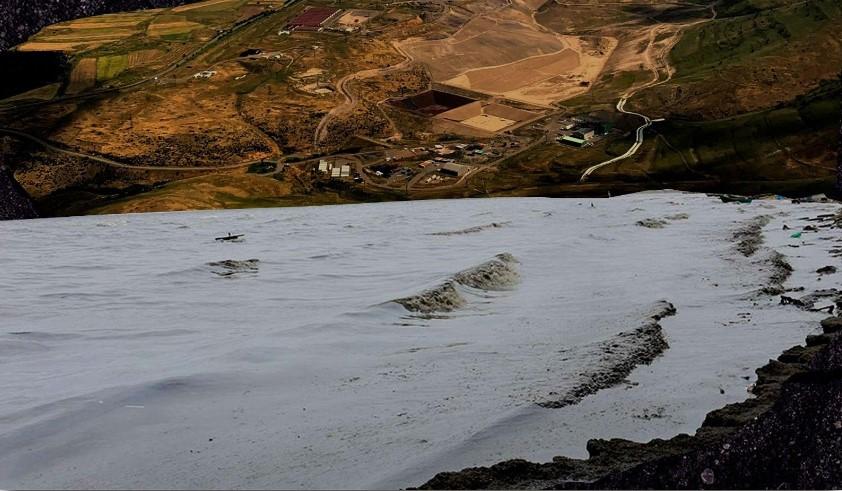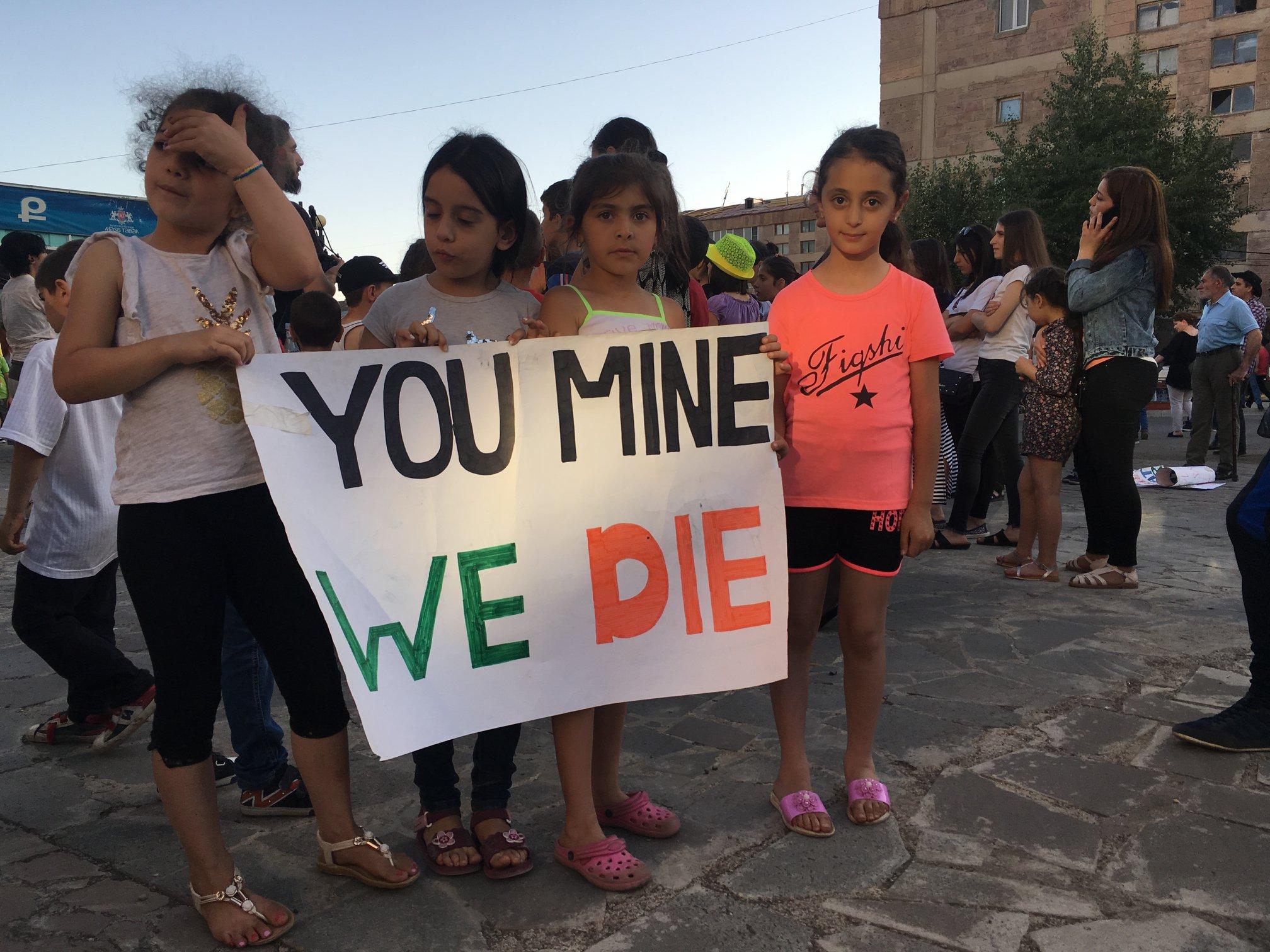Armenian leadership's quest for quick cash threatens to blight region Ecocide on the doorstep
Armenia is called "the land of stones". You will only be partially right if you imagine that this combination of words brings to mind grey boulders and cobblestones. The fact is that Armenia is also rich in other types of stone - mineral deposits - thanks mainly to the Azerbaijani Zangezur which was a gift from the Bolsheviks at the time. These deposits are not abundant but are enough to earn some cash. Most of it goes to the owners of Armenian or foreign-owned subsidiaries and officials linked to them by corrupt systems. Some of it ends up in the state coffers.
It is not a coincidence that it is the mining industry that has developed in Armenia in the first place. But it is difficult to call this process development in any real sense. The industry has been used in the most primitive manner, probably to make it more profitable. As a result, it has caused a great deal of damage to the environment.
But that is not all. Located on or near transboundary rivers, mining companies that dump toxic industrial waste into these waters pollute the ecology of neighbouring countries - Georgia, Iran and Azerbaijan. Our country is at the top of this list in terms of the amount of damage caused. To believe this, it is enough to have a look at the simplest statistics. Mining deposits, and therefore companies, are unevenly distributed among the various regions of Armenia. There are 3 per cent in the Lori region in the north, 6 per cent in Gegharkunik (Goychin region) in the east and 87 per cent in Syunik (Zangezur). As we can see, 2 out of 3 regions, or 95 per cent of all enterprises engaged in this sector, are located on the conditional border with Azerbaijan, with all the consequences that this entails.

These are just some of the mining companies operating in Armenia that are destroying the region's ecosystem. First on the list is the Zangezur Copper and Molybdenum Combine in Kajaran. The company's waste, which contains lead and other heavy metals, pollutes the Ohchuchay and Araz rivers. It processes an average of 20 million tonnes of ore a year without complying with environmental regulations. The 270 million square metre Artsevanik reservoir, which holds the mill's mining waste, poses a threat to the entire region. The German company Cronimet Mining GmbH owns 60 per cent of the shares in the combine.
The second is the Agarak Copper and Molybdenum combine. It processes an average of 4 million tonnes of ore a year. The Dawazam mill's waste dump currently holds some 36.8 million cubic metres of hazardous waste. The mill pollutes the Araz River via the Kerchivanchai (Karchevan) River with ore waste containing heavy metals. The plant's full shareholder is the American company Comsup Commodities.
The third is the Gegharkunik (Goycha) smelter. Produces about 100,000 tonnes of copper per year. It is owned by the Armenian company GeoProMining. The plant emits large amounts of sulphur dioxide and other pollutants into the atmosphere, causing air pollution and acid rain. The plant discharges wastewater into the Arpachay River, which is the source of drinking water for some parts of the Nakhchivan Autonomous Republic.
The Amulsar gold mine, which is in the process of being licensed, is also on the list. Located near the mineral resort of Jermuk (Istisu), the mine, if exploited, will threaten the mineral springs of the nearby region. In addition, the company's waste will be dumped into the Bargushad River and pollute the Araz River via its tributary, the Khakari.
The last company mentioned was the subject of a bitter dispute between Armenian civil society and the Armenian government. For several years, Armenian environmental activists have been fighting to stop the project. Environmental movements in Armenia have also sounded the alarm about other projects.

However, Azerbaijan is no less, and we suspect more than Armenia, affected by the environmental damage caused by Armenian mining companies. Moreover, as a responsible member of the international community, Azerbaijan is generally concerned about the environmental situation in the region, regardless of which country suffers more from the activities of a particular company.
In particular, an open letter from representatives of Azerbaijani civil society to Armenian Prime Minister Nikol Pashinyan on July 7 expressed Baku's concern about the irresponsible activities of Armenian companies. The authors of the letter expressed their solidarity with the position of Armenian civil society on the environmental situation in the country. Among other things, the letter noted that the UN recognises a clean, healthy and sustainable environment as a basic human right. However, by committing environmental crimes, Armenia is contravening the UN Sustainable Development Goals, in particular, Goal 3 - "Good health and well-being", Goal 6 - "Clean water and sanitation", Goal 12 - "Responsible consumption and production", Goal 13 - "Combat climate change" and Goal 15 - "Protect terrestrial ecosystems". In addition, Azerbaijani activists called on the Prime Minister to suspend the activities of twelve of Armenia's most polluting mining companies.
But the Armenian leadership, in its quest for quick cash, lacks the will to strictly regulate the activities of unscrupulous companies. Against the backdrop of Yerevan's accelerating rearmament and increasing military budget, hopes for such changes are fading by the day. On the contrary, it can be expected that the Armenian government will increase the number of such companies in search of additional money. Now the dreams of revanchism could become a time mine under the ecological balance of the South Caucasus.
The Armenian authorities should urgently revise their environmental policy, abandon their revanchist agenda, make peace with Azerbaijan and work with other countries in the region to restore our common environment.
So far, Armenia has been aggressive towards the region. And this must have its social and legal consequences.








